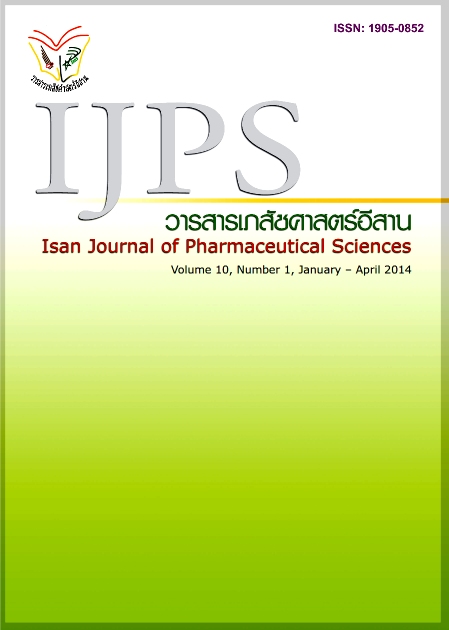Past…Present…Future of Pharmacy Education in Thailand (Part I)
Main Article Content
Abstract
This concept paper discusses the past, current status and future trends of pharmacy education in Thailand. Relevant primary and secondary data, evidences, facts and figures were compiled and presented along with data analyses and best possible estimation. Significant remarks and extrapolation were proposed in order to provide most plausible future prospects and to pinpoint critical considerations and opportunities for improvement for all stakeholders, particularly, university administrators, policy makers, and relevant professional affiliations and networks.
An emphasis was made on the pharmacy education framework including (1) the input (student admission), (2) the process (the learning process according to the curriculum), and (3) the output (pharmacy graduates). The definition and components of pharmacy education were described. The key components of the pharmacy education process were thoroughly covered and identified, namely, the core knowledge of pharmacy, curriculum structure, quantity and quality of pharmacy educators, preceptors, desirable student attributes, pharmacy education activities, good practices in pharmacy education, continuing pharmacy education (CPE), internalization, and professional postgraduate studies. The output of the process (pharmacy graduates) inevitably related to the demand and supply of pharmacist workforce and their balance, the core and specific professional competencies required for current pharmacy practices, and finally, the licensure examination which is the professional quality monitoring enforced by the Pharmacy Council of Thailand.
The quality assurance system and well-organized production plan of pharmacy graduates, both quantitatively and qualitatively, based on the exact demand of pharmacy workforce were strongly recommended for the overall strategic plan of pharmacy profession. This definitely required a strong collaboration of policy makers and stakeholders including the Pharmacy Council, the Pharmacy Education Consortium of Thailand (PECT), all faculties of pharmacy and pharmacy networks/associations, in order to strengthen the profession in every dimension thus giving the best possible direction and progress in the next decades.
Pharmacy education has a close relationship with a variety of external factors, particularly societal factors as well as government and healthcare system policies. In addition, the roles of stakeholders, relevant professional associations/networks should to be strongly involved. It should be noted that the expression of proposals and comments herein was made with a sincere intention in a most positive and creative way so as to develop the pharmacy education professionally to its full potential, as the pharmacy profession commemorated its centennial celebration in the year 2013.
Article Details
In the case that some parts are used by others The author must Confirm that obtaining permission to use some of the original authors. And must attach evidence That the permission has been included
References
-


